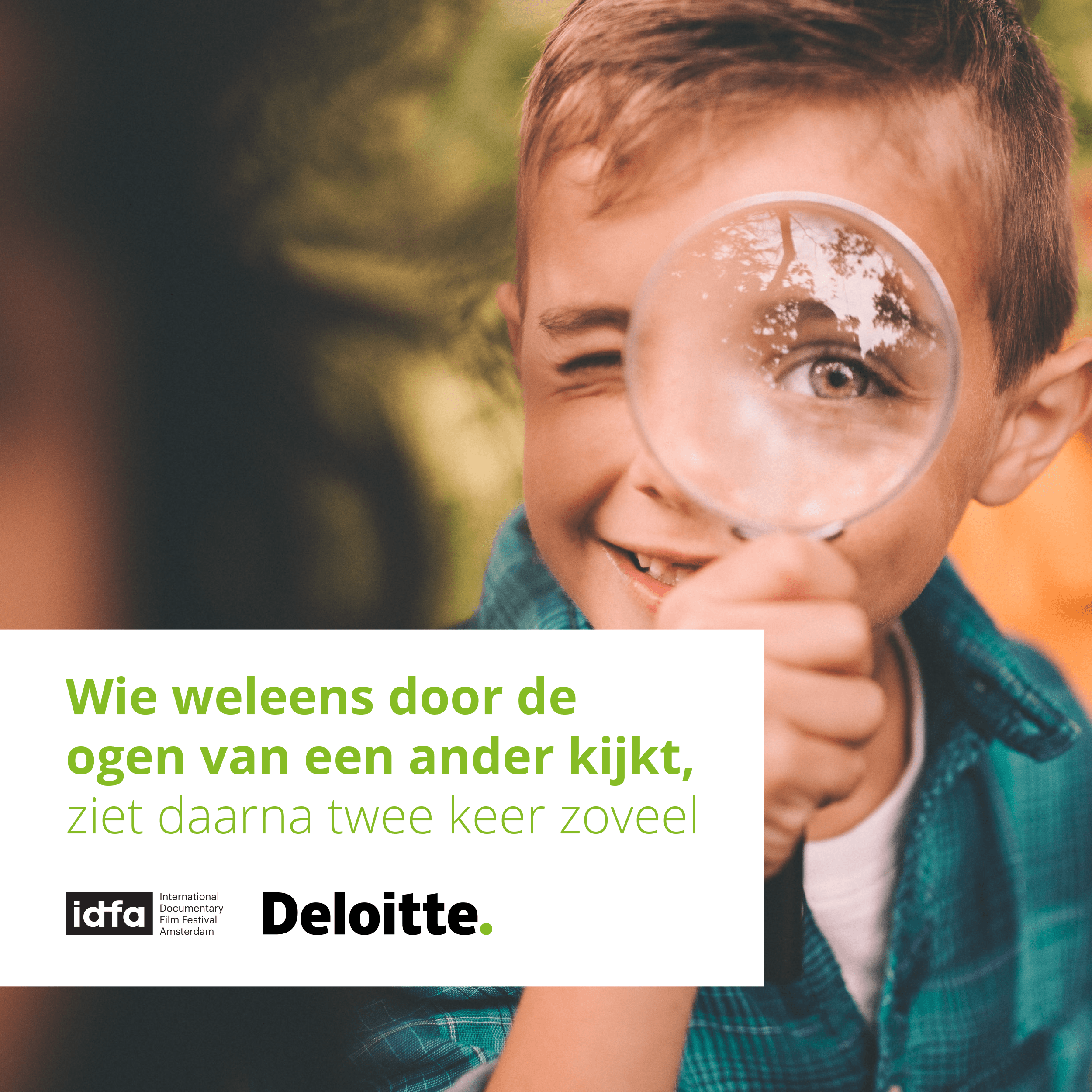Social responsibility
IDFA provides a platform for films and projects from non-Western cultures, highlighting work by underrepresented filmmakers with diverse perspectives. This commitment is embedded in both IDFA’s and the IDFA Bertha Fund’s DNA and is deeply tied to the documentary genre itself—one that amplifies untold and overlooked histories. IDFA firmly believes that diverse perspectives enrich the genre and offer deeper insights to audiences, professionals, partners, and students alike.
Program
IDFA actively evaluates and tracks the diversity of its festival program. Between 2021 and 2024, non-Western films consistently represented around 40% of the lineup, accounting for 36.7% in 2024. For the 2025–2028 period, IDFA aims to uphold this percentage and, where possible, work toward increasing it to 50%.
IDFA also remains committed to gender equity, striving for 50% of the program to feature films and new media projects by women filmmakers. In 2024, the festival included works directed by 125 men, 102 women, and 7 non-binary filmmakers, with 29 films co-directed by mixed-gender teams.
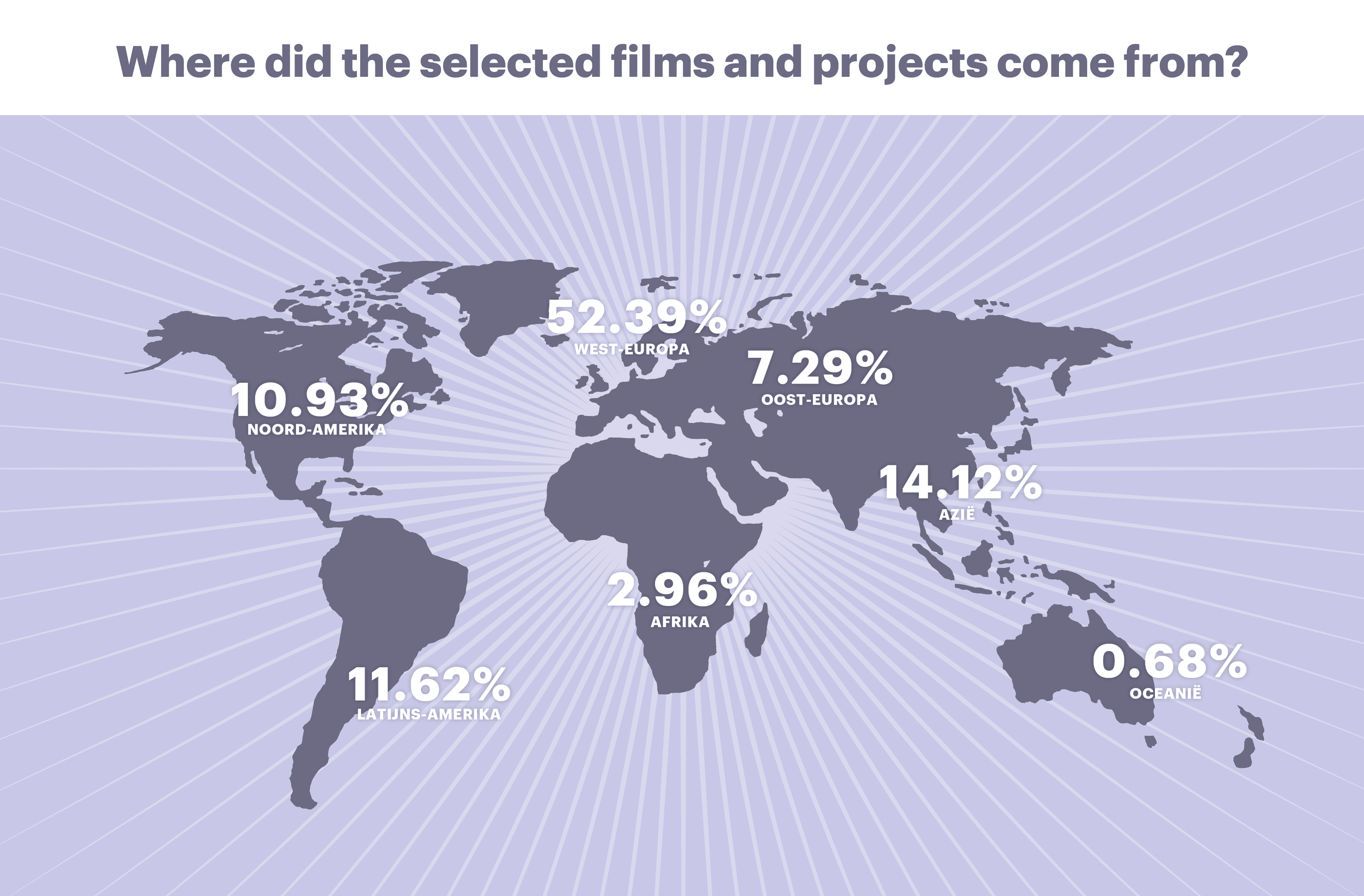
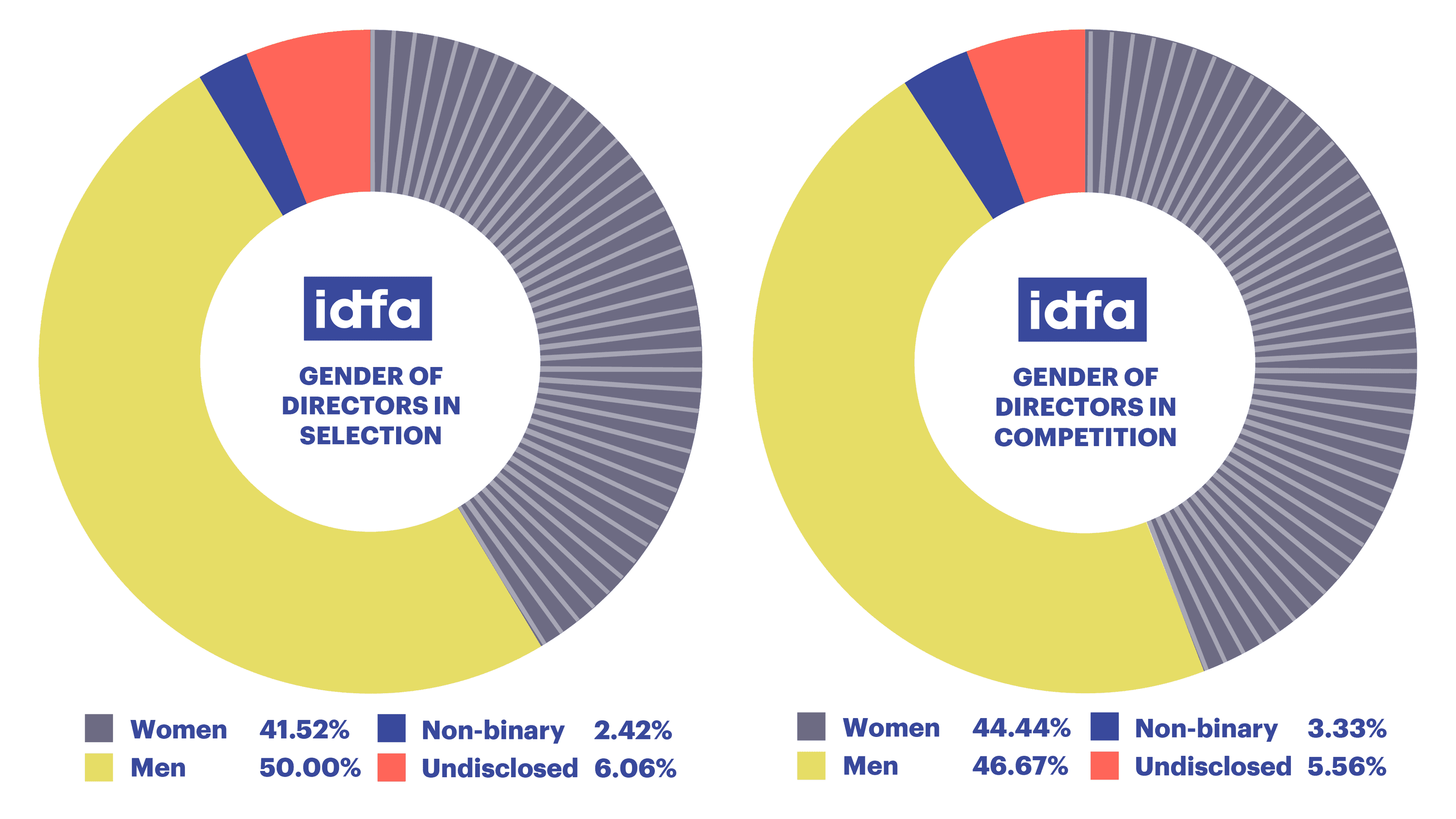
Organization
IDFA strives to foster a diverse and inclusive workplace. In recent years, the Supervisory Board, management, staff, selection committees, and scouting teams have increasingly reflected a broader range of backgrounds. The HR Manager actively prioritizes inclusion and employee well-being, and diversity is a key consideration in recruitment.
In 2024, IDFA employed 99 staff members, 45% of whom had a culturally diverse background. Among them, 23% had a non-European background.
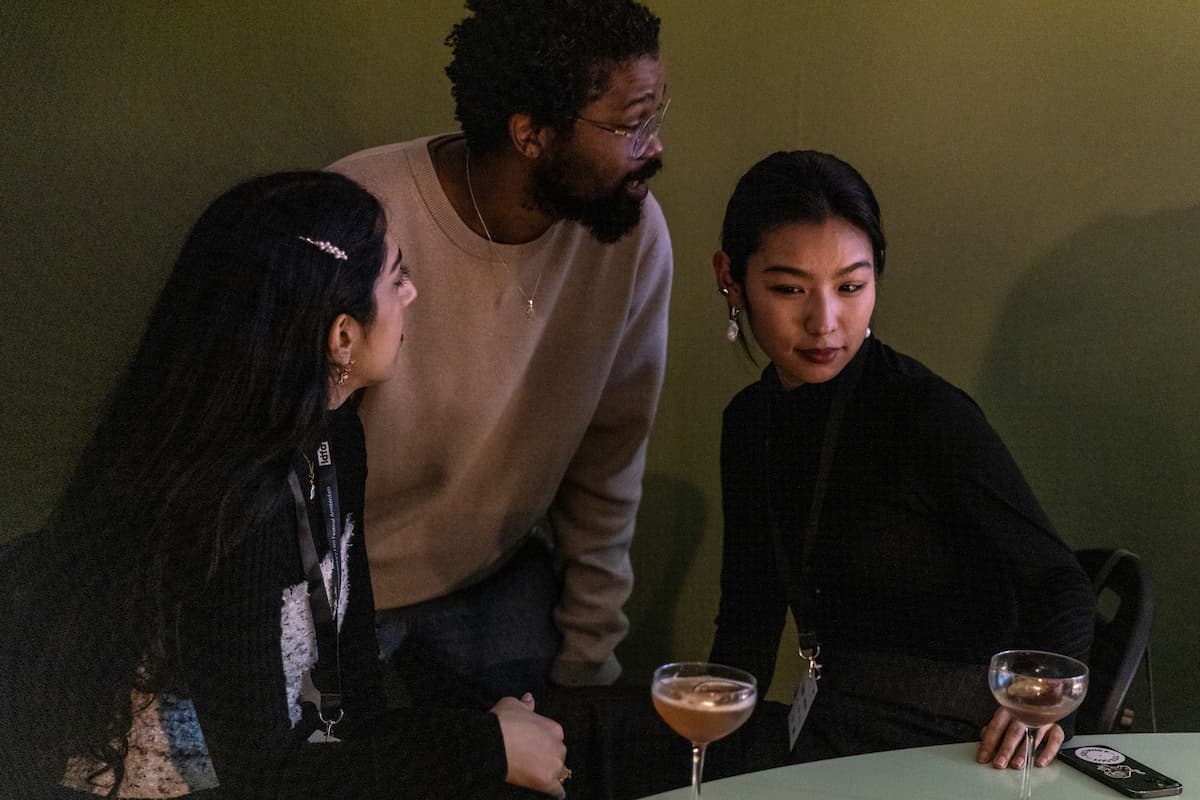
IDFA staff and visitors come together at the DocLab Exhibition (Photo: Angeniet Berkers)
Accessibility
With approximately 1.7 million people in the Netherlands living with a disability that affects their access to arts and culture, IDFA has actively worked to break down accessibility barriers, making significant progress in recent years.
Efforts have included expanding services for wheelchair users, increasing the number of screenings with audio description (AD) and subtitles for Deaf and hard-of-hearing audiences (SDH), and tripling the number of sensory-friendly screenings from 35 in 2023 to 84 in 2024. Dutch documentary filmmakers were encouraged to integrate AD and SDH, resulting in a doubling of Earcatch app users. Internationally, accessibility measures expanded to include more SDH screenings and a fully wheelchair-accessible VR Gallery.
For the first time, sensory-friendly screenings were held at Het Documentaire Paviljoen, with IDFA staff volunteering to assist—raising internal awareness of accessibility. Additionally, IDFA launched a dedicated accessibility webpage and partnered with SAVT (Stichting Audiovisuele Toegankelijkheid) to promote AD and SDH among filmmakers and audiences.
Online accessibility also improved, with four films available on video-on-demand, two featuring AD and all with SDH. However, user feedback identified challenges in the ticketing process. In 2025, IDFA aims to simplify this process and introduce AI-generated subtitles for industry programs to reach a broader audience.
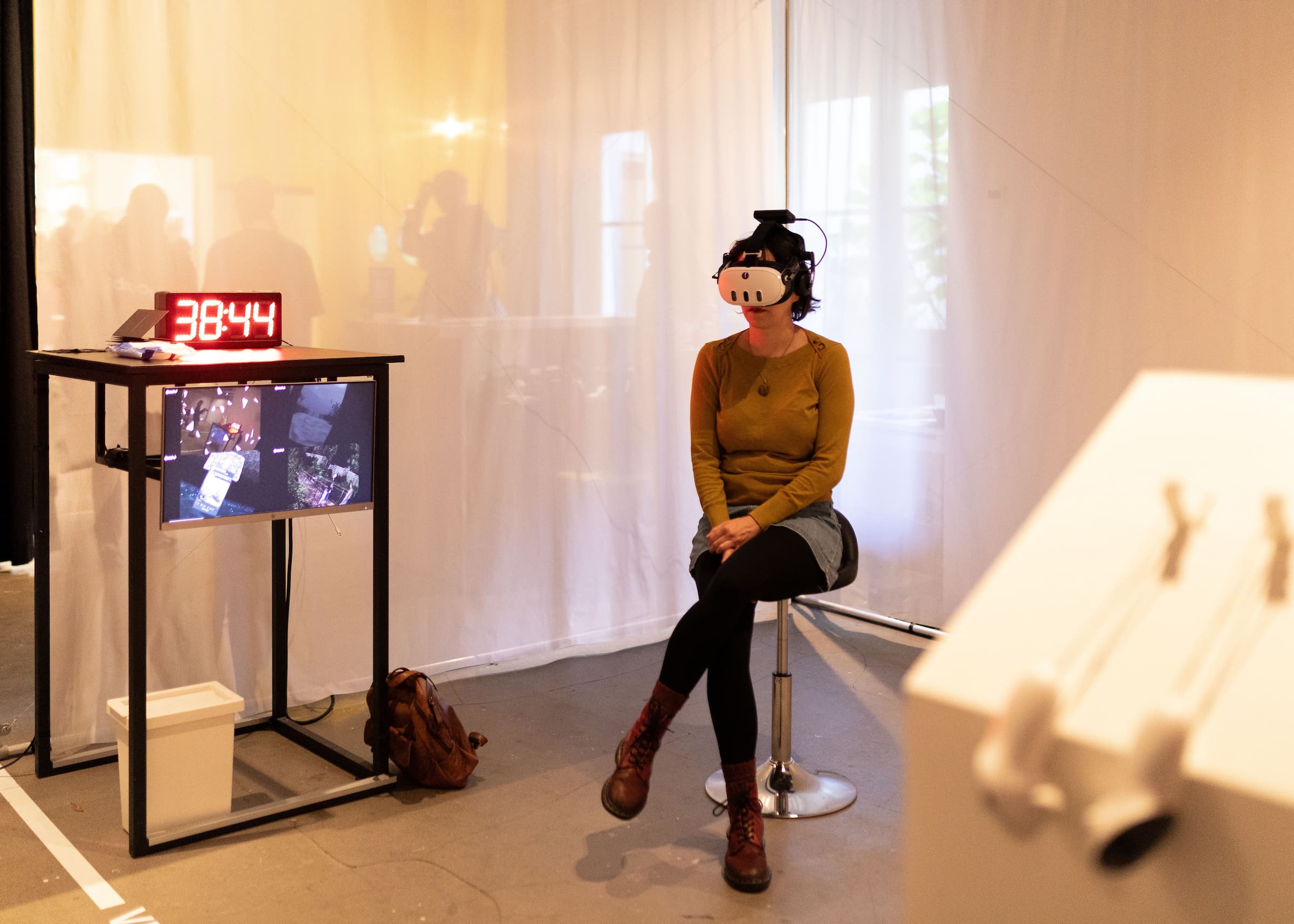
De VR Gallery at @droog is fully wheelchair accessible (Photo: Nina Schollaardt)
Sustainability
Sustainability is central to IDFA, reflected both in its film programming and operational practices. The festival continuously works to reduce its ecological footprint by improving material use, catering, transport, and waste management.
In 2024, IDFA focused on reducing waste and switching to reusable alternatives, including minimizing printed promotional materials. Volunteer t-shirts were washed and reused, tote bags were discontinued, and disposable tableware was replaced with reusable options. Catering for public events and crew lunches prioritized vegetarian and vegan meals.
To encourage sustainable travel, IDFA only reimbursed flights for professionals traveling over 500 kilometers and actively promoted train and tram travel in partnership with Choo-Choo and GvB. Within Amsterdam, all festival vehicles were fully electric. Film transport was entirely digital, and an internal Green Code of Conduct was implemented to embed sustainability practices among staff, volunteers, and partners.
For the second consecutive year, IDFA measured its ecological footprint. While the expanded scope of measurement made direct comparisons with the previous year difficult, the festival’s sustainability efforts earned a 3/5-star certification from the Green Producers Club—both a milestone and motivation to build on these efforts.
IDFA’s long-term goal remains clear: a climate-neutral festival by 2050. In collaboration with other Dutch film festivals, the organization continues to take steps toward a more sustainable future.
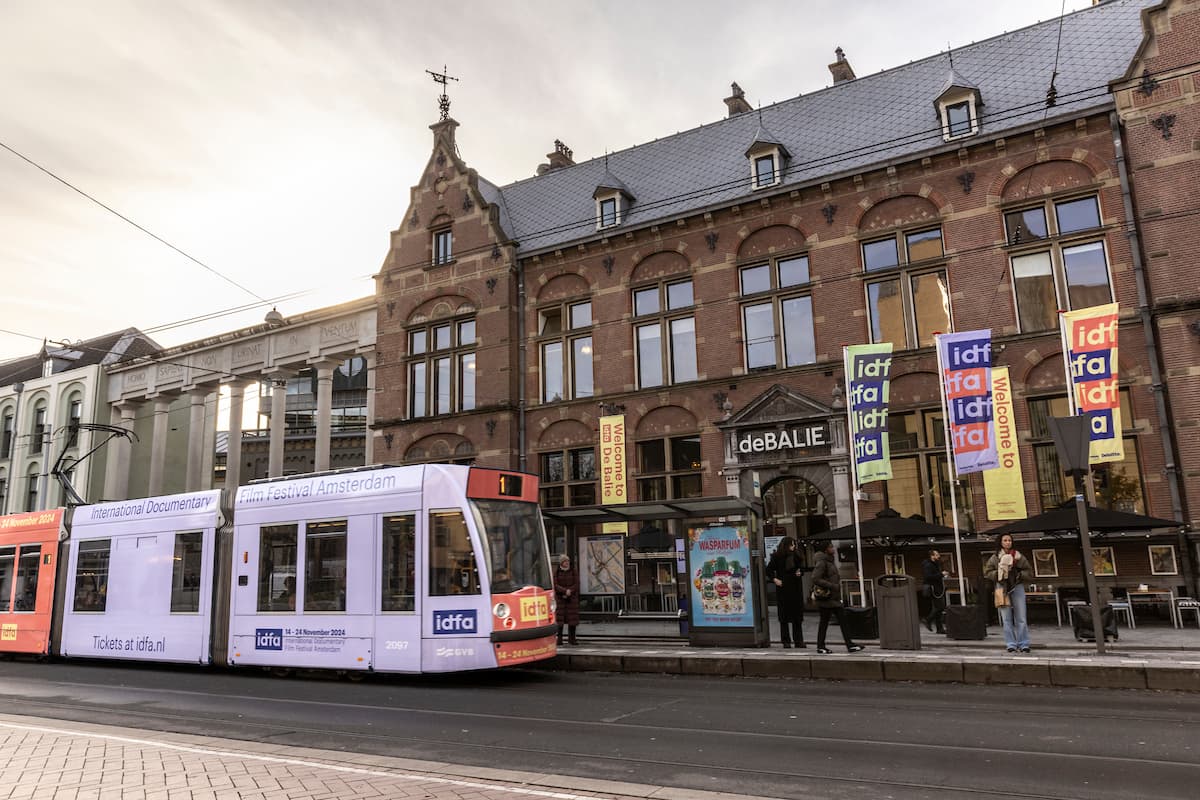
New partner this year: the GvB (Photo: Angeniet Berkers)
